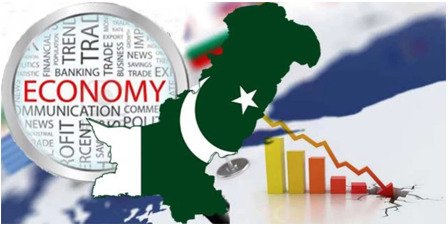INP-WealthPk
Ayesha Saba
Experts warn that without stronger institutions and long-term planning, Pakistan's economy will continue to underperform due to structural weaknesses and inconsistent policies.

Talking to WealthPK, Dr Nadeemul Haque, an eminent economist and former deputy chairman of the Planning Commission, highlighted Pakistan's chronic economic weaknesses. He said that the country's investment-to-GDP ratio has remained stubbornly low, staying below 20% for the past 40 years.
He emphasised that this prolonged underinvestment lies at the heart of Pakistan's economic stagnation, preventing capital formation essential for industrialisation, job creation, and technological advancement. "No economy can achieve sustainable growth with such low investment levels," Haque noted, pointing out that comparable emerging markets typically maintain investment rates of 25-30% of GDP.
“The country's exports are largely resource-based, with textiles and rice dominating, but they lack both product and market diversification. This narrow export base underscores the limited capabilities of domestic firms to enter and compete in international markets,” he maintained. “We have a consumption-driven model that does not incentivise production or exports.
Our economy lacks diversification, and without institutional mechanisms to support structural transformation, we will continue to underperform,” the former Planning Commission deputy chairman noted. “Pakistan must prioritise technological upgradation and diversification to break out of its export stagnation.
Countries like Bangladesh and Vietnam have surged ahead by modernising their industries and integrating into global supply chains. Pakistan, however, has lagged behind due to policy inertia and inadequate investment in human capital,” he stated. Haque stressed the need for autonomous, well-staffed, and well-funded institutions that can design, implement, and monitor economic policies. “Without such capacity, even well-intended reforms cannot produce desired outcomes.”
Talking to WealthPK, Asad Rehman, a policy analyst at S&P Global, said that the critical issue is the state’s overregulation and excessive interference in markets, which deters entrepreneurship and stifles competitiveness. “The World Bank’s doing business reports have repeatedly pointed to cumbersome procedures in tax compliance, contract enforcement, and business registration as key deterrents to private investment,” he pointed out.
“To break free from this cycle, Pakistan must streamline regulations, reduce red tape, and limit government interference in market mechanisms. Simplifying tax procedures, digitising land and business registries, and ensuring faster dispute resolution would encourage formal business growth,” he noted.
Additionally, he stated that shifting from a controlling role to an enabling one, where the state focuses on infrastructure, rule of law, and fair competition rather than direct intervention, could unleash private sector potential. “Without these reforms, Pakistan’s economy will continue to lag behind regional peers, missing out on the investment and innovation needed for sustainable growth.”
Credit: INP-WealthPk













